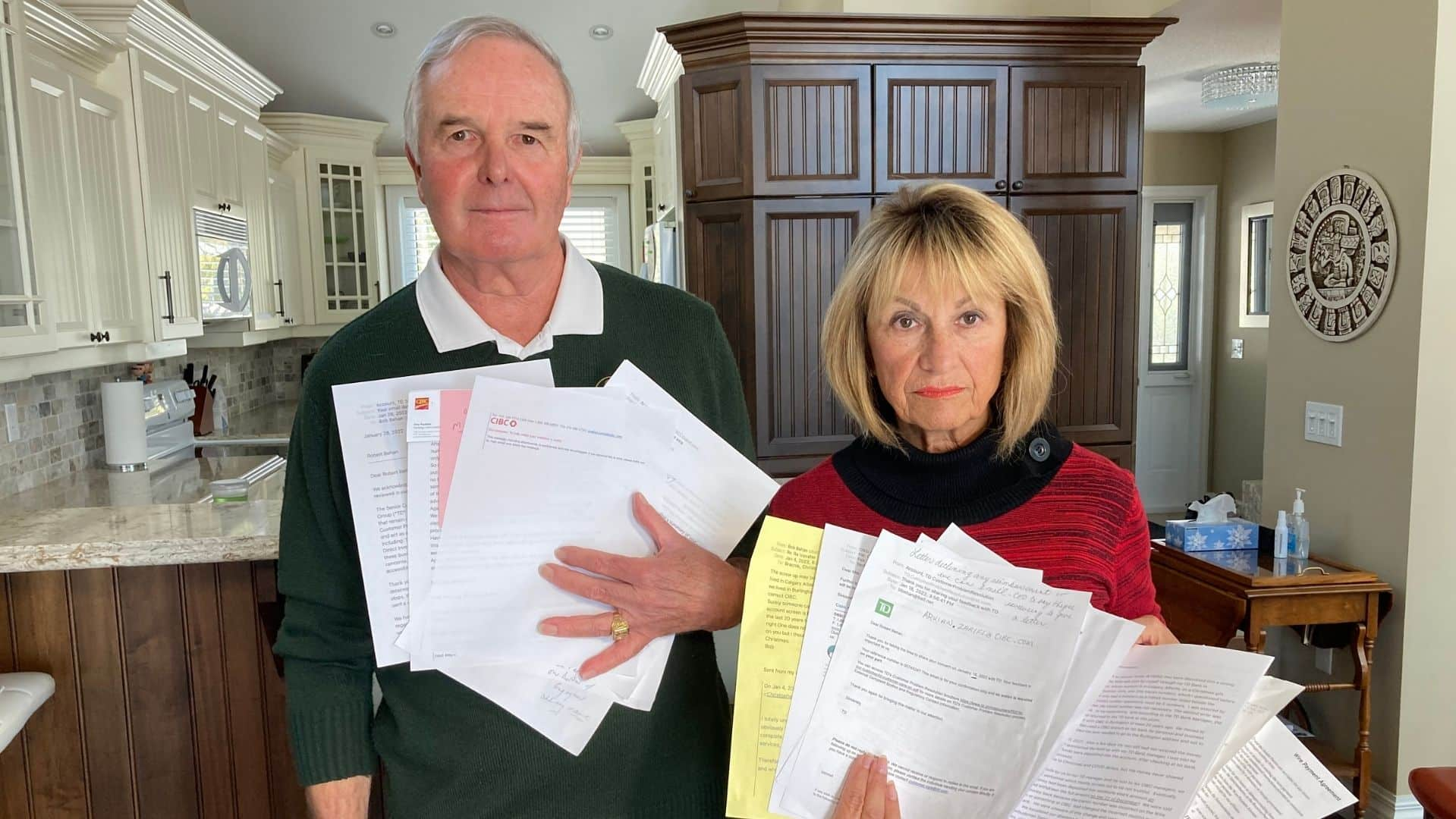Fraud fighters; why some are ditching their gas stoves: CBC’s Marketplace cheat sheet | CBC News
Miss something this week? Don’t panic. CBC’s Marketplace rounds up the consumer and health news you need.
Want this in your inbox? Get the Marketplace newsletter every Friday.
Canadians tell us they’re fed up with scam calls. So why did the RCMP dismantle its phone scam task force?
We’re all sick and tired of picking up the phone and finding a phone scammer on the other end.
For five years, Marketplace has been on the case, investigating the scams, the scammers overseas and the alleged co-ordinators in Canada who funnel money abroad.
In 2018, the RCMP launched Project Octavia, a special task force dedicated to stopping scam calls that formed in the wake of Marketplace‘s initial investigation into the CRA tax scam.
But as the calls have increased, so have the millions of dollars Canadians are losing each year.
To date, the task force has charged nearly a dozen people in Canada accused of funnelling money to criminal syndicates running phone scams that target Canadians.
But as Marketplace has learned, before any of those cases made it to trial, the Mounties disbanded their financial crimes unit in Ontario and are no longer investigating these alleged money mules through Project Octavia.
Experts in financial crime worry this will only embolden the scammers.
“In an industry like this that operates with impunity, you are sending a message that Canada doesn’t care about this kind of crime,” said Vanessa Iafolla, a financial crimes researcher at Saint Mary’s University in Halifax. Read more
Watch Marketplace’s one-hour season finale for much more on this story, including how good-guy hackers are fighting back against phone scammers and saving vulnerable Canadians from falling prey to their schemes in the process. Catch up anytime on CBC Gem.

This couple tried to send their son $10,000. It went into a stranger’s account instead
It’s advertised as a safe and reliable way to send money, but an Ontario couple says the $10,000 wire transfer they sent their adult son was deposited into a stranger’s account, then disappeared.
Barbara and Robert Behan wanted to help their son and his young family finish the basement in their home, so they sent the cash as a Christmas gift.
The transfer was sent from the couple’s TD Bank account in Penetanguishene, Ont., on Dec. 21, to a CIBC branch in Calgary where their son has been banking for decades. But the money never showed up in his account.
Weeks later, CIBC told the Behans the money was gone — deposited into someone else’s account the day it was sent — and that the account holder had withdrawn all $10,000 the next day, then shut the account down.
“It’s inconceivable. Apparently this person had the exact same account number as our son,” Barbara said.
CIBC says clients can have identical account numbers. It’s another set of numbers — the five-digit transit numbers that identify a specific branch — that differentiates accounts.
After two months of battling between the banks, CIBC’s ombudsman decided CIBC was not at fault and offered the couple half of their money back as a goodwill gesture.
But after Go Public contacted the bank, the full amount was returned to the Behans.
All of this could have been prevented if banks had a better system in place to make sure wire transfers end up in the right place, says banking expert Werner Antweiler. Read more
An Ontario couple says their $10,000 wire transfer was deposited in the wrong account and then disappeared. The case highlights a key problem with Canada’s wire transfer system — a lack of built-in error detection. 2:10
Some researchers are ditching their gas stoves. Here’s why
Do you have a gas stove in your home?
Experts say it might be time to consider switching to an electric stove if you have the means.
Tara Kahan, a chemist at the University of Saskatchewan, says that when she took pollution readings inside homes after cooking with a gas stove, she was surprised by how high the levels of nitrogen oxides were and how long they lasted.
Her colleagues were also shocked.
Exposure to nitrogen oxides, produced when gas is burned, is linked to respiratory problems such as asthma and decreased lung function, especially in children. For example, a 2013 meta-analysis of 41 studies found that children living in a home that used gas for cooking had a 42 per cent increased risk of having asthma.
If it’s not possible to replace your gas stove, there are other things you can do to reduce your risk.
Try using other cooking methods when possible, including the microwave and portable induction burners, use the back burners more often and make sure to ventilate when cooking, says Rob Jackson, professor of environmental sciences at Stanford University. Read more

What else is going on?
The labour shortage isn’t over — and employers are having to lower their hiring expectations
Businesses are dropping some of their job requirements as they struggle to recruit the right candidates.
Avian flu poses ‘significant risk’ to Canadian poultry farms as cases reported in multiple provinces
Human transmission not a concern yet, but strain may disrupt poultry industry.
B.C. oysters now linked to dozens of norovirus cases in several U.S. states
At least 91 people have become sick across U.S., after almost 300 reported cases in Canada.
Some Kinder brand chocolates recalled due to salmonella risk
Canadian Food Inspection Agency says recalled chocolates should not be eaten.
Marketplace needs your help


Hello, Atlantic Canada! Marketplace is coming to the East Coast, and if you’re a big fan of the program, we want to meet with you! Tell us why you love the show and how it makes a difference with your family, in the community and in the classroom. You could be featured in our upcoming 50th anniversary special this fall. Email us with your phone number at [email protected].
Catch up on past episodes of Marketplace on CBC Gem.
For all the latest business News Click Here


